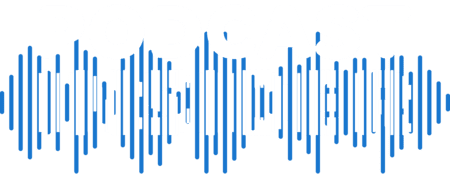 For your collaborators’ sake, don’t attempt to record your show without using a template. A template is your roadmap to a successful, streamlined, focused episode. It’s a simple document that keeps you on target and makes your show more enjoyable for your listeners.
For your collaborators’ sake, don’t attempt to record your show without using a template. A template is your roadmap to a successful, streamlined, focused episode. It’s a simple document that keeps you on target and makes your show more enjoyable for your listeners.
Start your template with important information about your podcast. This typically includes the name of your podcast, the name of the hosts and guests, the episode number of your podcast and the name of the episode. You should also let listeners know the date of the recording.
Here is a simplistic template for the start of your show:
“You are listening to (name of podcast). I’m your host, (your name), and I’m here with (name of co-host and/or guest). Today is (month/date/year). This is episode number (050), and it is titled (catchy name that reflects what you will talk about).”
When you are ready to do your next episode, refer back to the show introduction template. Change out the old episode number to the new one, pick a new episode title, and fill in the current date. It doesn’t take long to do, and it will help you sound consistent and professional.
There are many podcasts where the host and co-host feel comfortable using their real names on their show. Gaming podcasters, however, often use the name of their main character from whatever video game their show primarily focuses on. Whichever way you go, it helps your audience to recognize you.
Here are some things that can also be part of your template:
Pre-recorded intros and outros: Instantly get listeners attention by using a pre-recorded intro and outro in your episode. This will quickly get the attention of your listeners, while giving them information such as the name of your show, the names of the host and co-host and perhaps some amusing sound clips from previous episodes. Make it fun! Music can be included – but you need to be super careful about copyright.
The outro should include the name of the podcast and a reminder to your audience where to find the website of the podcast and where to find the show’s accounts on social media.
Recent news that fits the topic of your show. Tell your listeners the title of the article and where it came from. Put a link to that article in your template – it will make creating show notes faster.
Advertisements: Monetization has become a big deal in podcasting because ads can (potentially) generate money to keep the show going. Your template can help you to wrap things before switching to a host-read ad. To make things easier, put the entire text of what you need to read into your template, so you aren’t fumbling around while reciting the ad.
Where to share your template:
If you are a solo podcaster, you can put your show’s template on your computer, phone or tablet. Whatever works best for you. Just remember to update the episode number, name of episode and date before you start your next episode. Podcasters who meet in person to record the show can send a copy of the template to the co-host.
Podcasters who do their show remotely, with people who live far away, can make use of Google Docs. The free version allows you to invite in people who will take part in the newest episode of your podcast. The host(s) and co-host(s) can access the Google Doc in between episodes to add in topic ideas, links to relevant news and more. Make sure to update the date, episode number and show title before you hit record.
Do you use your show’s Discord to gather a live audience and record new episodes? Prepare a template before you jump into a host/cohost-only voice channel. Fans can listen in while participating in a text chat. It is a great way immediately answer questions, highlight amusing comments and get a sense of audience’s interest.
____________
 Jen Thorpe has been podcasting since 2005. They are the host of the Shattered Soulstone podcast, which releases new episodes every week. When they aren’t podcasting, they are playing video games or Dungeons & Dragons.
Jen Thorpe has been podcasting since 2005. They are the host of the Shattered Soulstone podcast, which releases new episodes every week. When they aren’t podcasting, they are playing video games or Dungeons & Dragons.





